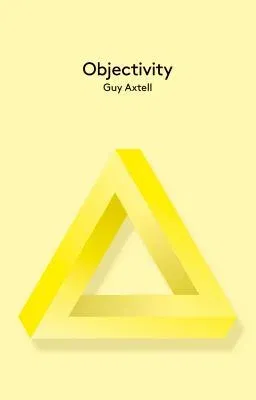Guy Axtell
(Author)ObjectivityHardcover, 2 December 2015

Qty
1
Turbo
Ships in 2 - 3 days
In Stock
Free Delivery
Cash on Delivery
15 Days
Free Returns
Secure Checkout

Part of Series
Key Concepts in Philosophy
Part of Series
Polity Key Concepts in Philosophy
Print Length
216 pages
Language
English
Publisher
Polity Press
Date Published
2 Dec 2015
ISBN-10
074566220X
ISBN-13
9780745662206
Description
Product Details
Author:
Book Format:
Hardcover
Country of Origin:
GB
Date Published:
2 December 2015
Dimensions:
21.84 x
13.97 x
2.54 cm
ISBN-10:
074566220X
ISBN-13:
9780745662206
Language:
English
Location:
Oxford
Pages:
216
Publisher:
Weight:
476.27 gm